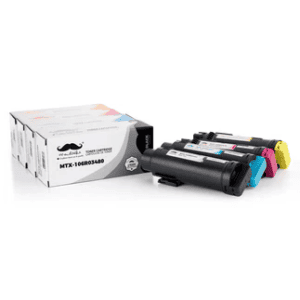Creating a serene outdoor environment often involves incorporating elements that can enhance the natural beauty of the space. One such element is a small fountain, which can transform your garden or patio into a tranquil oasis. However, the effectiveness of a fountain largely depends on the pump that powers it. Choosing the right pump not only ensures the fountain operates smoothly but also maximizes its aesthetic and auditory appeal. This article explores how selecting the appropriate pump can make a significant impact on your outdoor space.
Table of Contents
Understanding The Importance Of Fountain Pumps
The pump is the heart of any fountain, propelling water through the system to create the desired effect. Without a reliable pump, a fountain cannot function effectively. The right small pump for the fountain will ensure a consistent flow of water, which is crucial for maintaining the fountain’s visual appeal and calming sound.
Moreover, a properly chosen pump can prevent issues such as splashing or uneven water flow, which can detract from the overall experience. When selecting a small pump for a fountain, it is essential to consider factors such as the size of the fountain, the height of the water lift required, and the desired flow rate. A fountain that operates with a steady and appropriate flow is more likely to provide the soothing sounds and visual pleasure that contribute to a relaxing outdoor atmosphere.
Selecting The Right Pump Size
Choosing the correct pump size is critical for the optimal performance of your fountain. The size of the pump should match the dimensions and water capacity of your fountain. A pump that is too powerful can cause excessive splashing, leading to water loss and potential damage to surrounding plants or surfaces. Conversely, a pump that is too weak may result in inadequate water flow, diminishing the fountain’s visual and auditory impact.
To determine the appropriate pump size, measure the fountain’s water volume and consider the vertical height the pump needs to lift the water. Most pump manufacturers provide guidelines to help you match the pump size with your specific fountain requirements. Taking the time to accurately assess these factors will ensure your fountain operates efficiently and beautifully.
Evaluating Pump Types: Submersible vs. External
Fountain pumps come in two main types: submersible and external. Each type has its advantages and is suited to different types of fountains.
- Submersible: Submersible pumps are installed underwater, making them ideal for small to medium-sized fountains. They are relatively easy to install and maintain, and their submerged position helps minimize noise. These pumps are designed to operate quietly and efficiently within the water, making them less obtrusive and more aesthetically pleasing. Submersible pumps also often come with built-in filtration systems that help keep the water clean, which can be particularly beneficial in outdoor settings where debris might accumulate.
- External: External pumps, on the other hand, are located outside the water and are better suited for larger fountains or those with high water volumes. They tend to be more powerful and durable but may require more complex installation and maintenance. External pumps are often preferred for large-scale water features or when the fountain needs a significant amount of water movement. These pumps can be more accessible for repairs and adjustments, as they are not submerged, but they may require additional housing to protect them from the elements.
When deciding between submersible and external pumps, consider the size and design of your fountain, as well as your maintenance preferences. Both types have their merits, and the right choice will depend on your specific needs and the characteristics of your fountain.
Considering Energy Efficiency And Noise Levels
Energy efficiency is an important factor to consider when selecting a fountain pump, especially if the fountain will be running for extended periods. Energy-efficient pumps consume less electricity, reducing your overall energy costs and environmental impact. Look for pumps with energy-saving features or those rated for low energy consumption. Choosing an energy-efficient pump not only saves money but also aligns with sustainable practices, contributing to a greener environment. Additionally, many modern pumps are designed with energy efficiency in mind, offering advanced technology that minimizes power usage without compromising performance.
Noise levels are another crucial consideration, particularly if your fountain is located in a quiet area where a noisy pump could be disruptive. Submersible pumps generally produce less noise than external ones, but it is always a good idea to check the noise ratings of different models before making a purchase.
Maintenance And Longevity Of Fountain Pumps
Regular maintenance is essential to keep your fountain pump in good working condition and extend its lifespan. Maintenance tasks typically include cleaning the pump and filter to prevent clogs, checking for any signs of wear or damage, and ensuring the pump operates smoothly.
It is also important to protect the pump from extreme weather conditions, particularly during winter months when freezing temperatures can cause damage. Winterizing your pump involves draining the water and storing the pump indoors or using protective covers to shield it from the cold. By taking these preventive measures, you can avoid costly repairs and prolong the life of your pump.
Conclusion
A small fountain can have a significant impact on the ambiance and aesthetic appeal of your outdoor space. However, the effectiveness of a fountain is largely dependent on the pump that powers it. Selecting the right pump involves considering the above mentioned factors. By choosing a pump that is well-suited to your specific fountain and needs, you can ensure a consistent and attractive water flow, enhancing the overall experience of your outdoor environment. With careful selection and regular maintenance, your fountain will remain a cherished feature of your outdoor area, providing enjoyment and tranquility for years to come.












